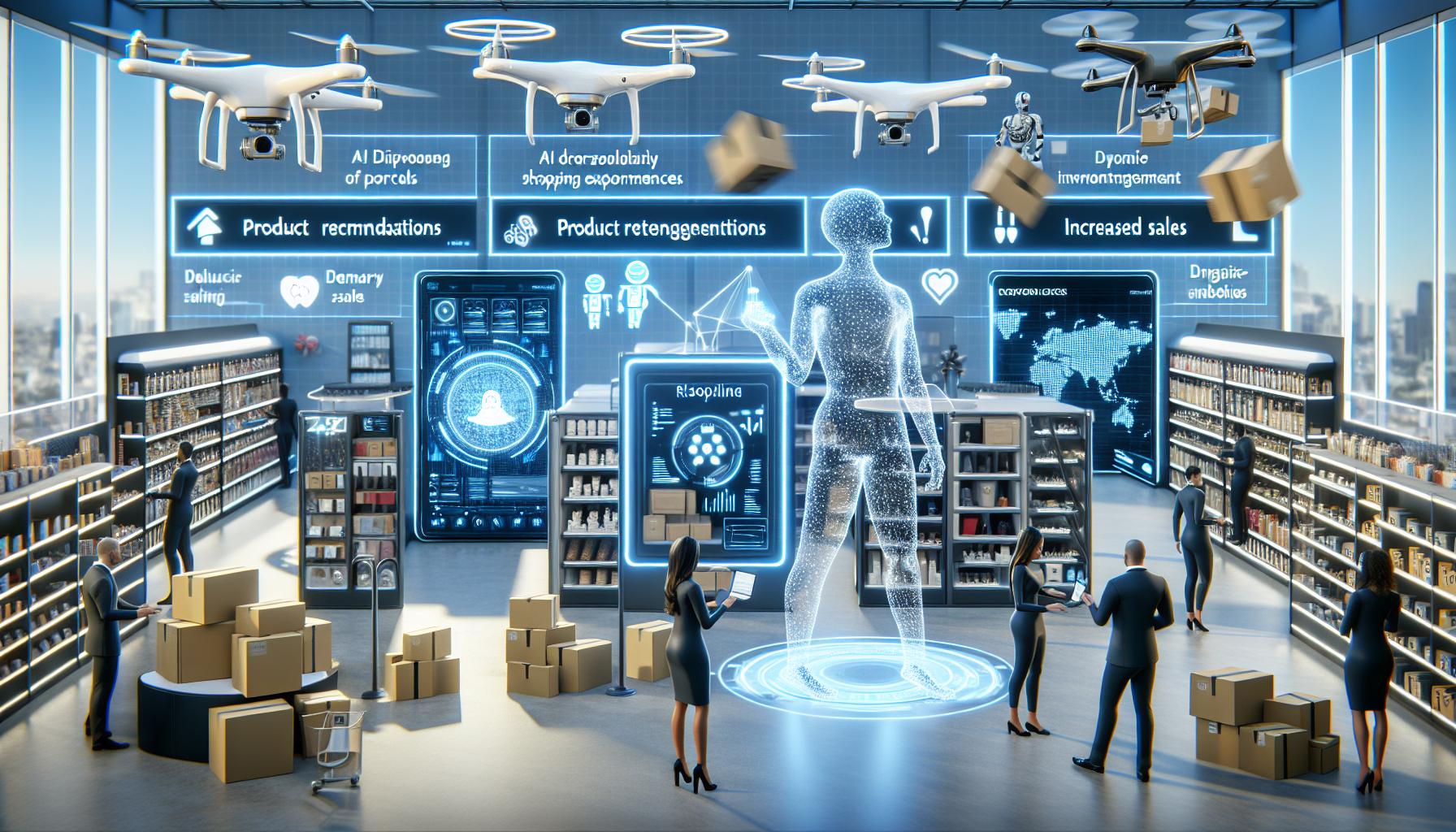Retail Revolution: AI-Powered Personalized Shopping Experiences

Introduction
The retail landscape is undergoing a significant transformation, driven by the advent of Artificial Intelligence (AI). AI systems are redefining the way retailers interact with customers, offering highly personalized shopping experiences. These technologies go beyond simple automation and customer service chatbots by embedding intelligent agents within retail systems to revolutionize product recommendations, pricing strategies, and inventory management. This article will delve into how these AI-powered solutions are reshaping retail, with real-world examples of successful implementations, and will compare their efficacy with ChatGPT-based customer service.
AI-Driven Product Recommendations
One of the most impactful applications of AI in retail is in delivering personalized product recommendations. By analyzing vast amounts of data on customer preferences, past purchases, and browsing behavior, AI agents can make incredibly accurate suggestions tailored to individual customers. Unlike traditional recommendation engines that rely on simple algorithms, AI systems use sophisticated machine learning models to continuously improve the accuracy of their recommendations.
For example, Amazon's recommendation system accounts for a significant portion of its sales, driving both cross-selling and upselling. The AI-powered recommendation engine evaluates millions of products and billions of interactions to identify patterns, ensuring that customers are presented with items they are most likely to purchase. This not only enhances the shopping experience but also significantly increases sales and customer satisfaction.
Dynamic Pricing Strategies
Dynamic pricing—strategically adjusting prices based on real-time supply and demand—is another arena where AI is making substantial strides. AI algorithms can assess a multitude of factors, including competitors' pricing, customer behavior, and inventory levels, to optimize pricing strategies. This level of agility allows retailers to remain competitive and maximize profitability.
Consider the case of Über's surge pricing model, which adjusts fares in real-time based on demand and supply conditions. While this is a well-known application in the ride-hailing industry, similar principles are being applied in retail. E-commerce giant eBay uses AI-driven dynamic pricing tools to set prices for millions of products in real-time, ensuring competitive pricing while maximizing revenue.
Enhanced Inventory Management
Inventory management is a critical component of retail operations, directly affecting customer satisfaction and business profitability. AI-powered systems provide advanced solutions for managing inventory by predicting demand, optimizing stock levels, and reducing wastage. These systems leverage historical sales data, market trends, and external variables such as seasonality and economic indicators to ensure optimal inventory levels.
Walmart, for instance, employs AI-driven inventory management systems to predict product demand accurately and manage stock levels efficiently. This results in reduced stockouts and overstock situations, ensuring that customers can always find the products they need while minimizing inventory carrying costs.
Contrasting AI Agents with ChatGPT in Customer Service
While AI-driven systems embedded within retail infrastructure offer numerous advantages, it is essential to understand the role of conversational AI like ChatGPT in customer service. ChatGPT can handle customer queries efficiently, providing quick and accurate responses. However, it primarily serves as a customer support tool rather than an integrated solution driving personalized shopping experiences.
ChatGPT excels in natural language processing, enabling it to understand and respond to a wide range of customer inquiries. This capability is valuable for improving customer service, handling common questions, and facilitating straightforward transactions. However, its role is more transactional compared to embedded AI agents that directly influence the shopping journey through dynamic product recommendations, pricing, and inventory management.
Real-World Success Stories
Several retailers have successfully implemented AI-powered solutions, resulting in enhanced customer experiences and improved business performance. For example, fashion retailer H&M uses AI to analyze store receipts, returns, and other data points to tailor product recommendations and optimize inventory levels. This approach has helped H&M reduce overproduction and markdowns, contributing to a more sustainable business model.
Another notable example is Sephora, which leverages AI to provide personalized beauty recommendations. By analyzing customer preferences and purchase history, Sephora's AI system suggests products that match individual tastes and needs. This has led to increased customer engagement and loyalty, significantly boosting sales.
The Future of AI in Retail
The integration of AI into retail systems is not just a passing trend but a fundamental shift that is here to stay. As AI technology continues to evolve, we can expect even more sophisticated applications that will further enhance personalized shopping experiences. Innovations such as augmented reality (AR) shopping assistants, AI-powered styling consultants, and predictive analytics tools will continue to push the boundaries of what is possible in retail.
In conclusion, the retail revolution driven by AI-powered personalized shopping experiences is well underway. From advanced product recommendations and dynamic pricing strategies to efficient inventory management, AI is transforming the way retailers operate and engage with customers. By embracing these technologies, retailers can not only stay competitive but also foster long-term customer loyalty and drive sustainable growth.




